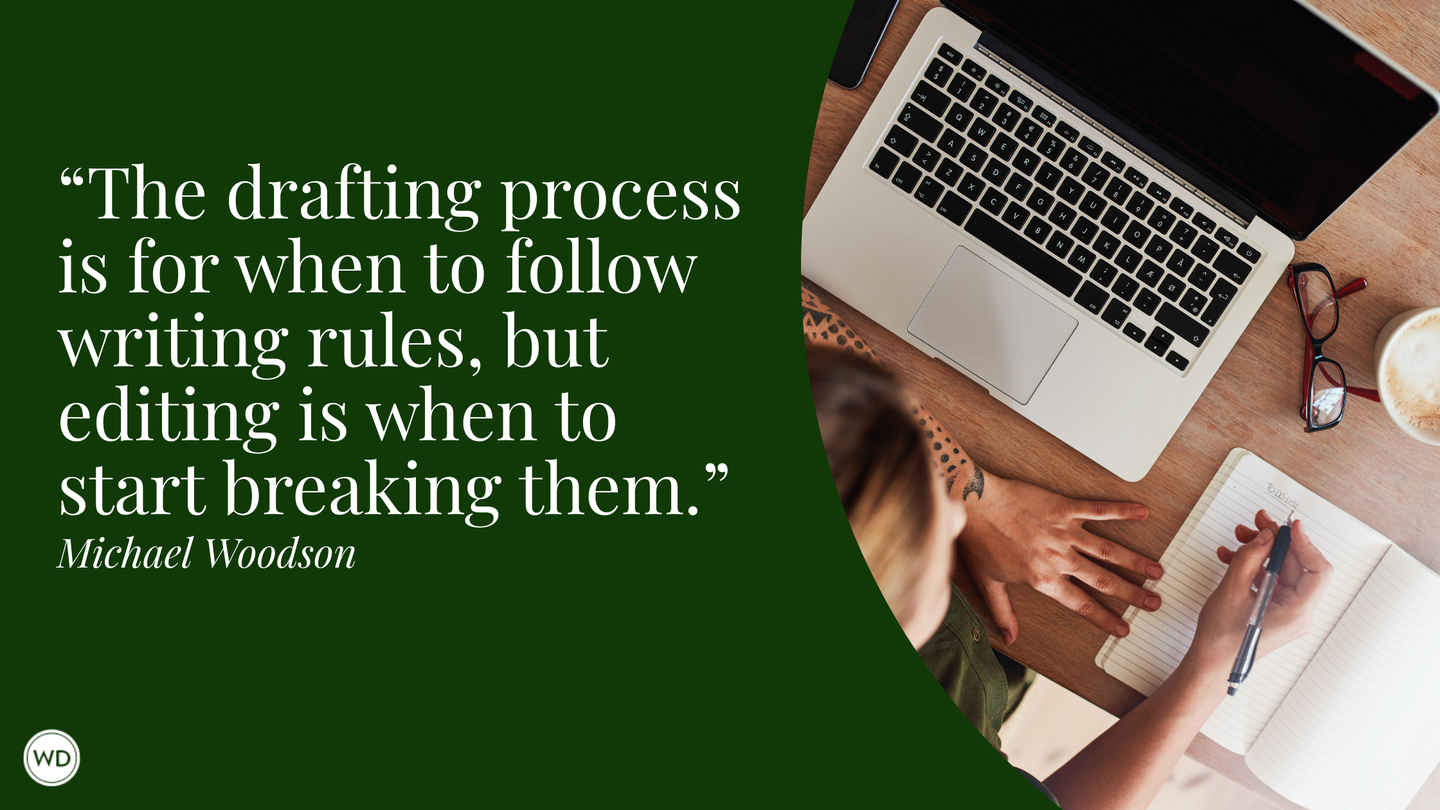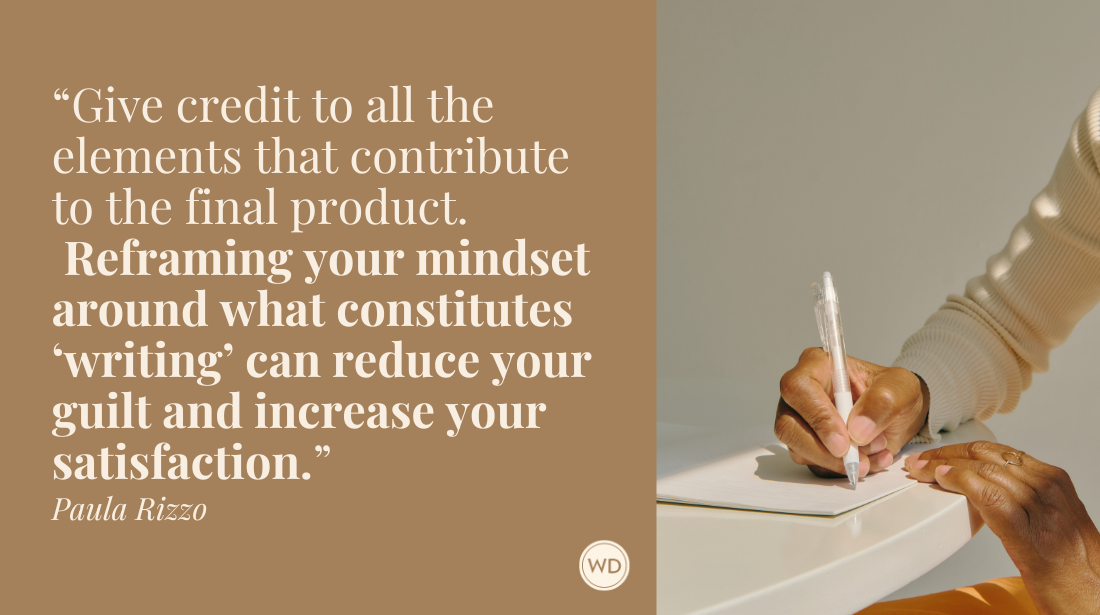How to Create the Mental Space to Write
Author Julia Kelly explains why it’s important to cultivate internal space to write and gives you tips for how to do so.
Virginia Wolfe may have written that every woman must have “a room of her own if she is to write fiction,” but that isn’t always a luxury afforded to every author—regardless of their gender. Many of us find ourselves fighting to find the space to write in family-filled houses, shared apartments, or even cramped studios. But it’s the demands on our time and energy that can be even more difficult to fit our writing into. That’s why creating the mental space to write is vital, no matter what stage you’re at in your writing career.
Your brain is the hub of all of your activity. It processes everything from the functions that keep you alive to the reminder that on Tuesdays you need to take out the garbage for collection. It’s an incredible organ that allows you to make your way through a complex life with demands on your time and energy, but it’s that complexity that can sometimes sabotage even the best of intentions when it comes to writing. Anyone who has sat down in front of their computer at the end of a long day of work and stared blankly at their screen will be familiar with this feeling.
Creating Mental Space to Write
Creating mental space for your writing to thrive is about giving your mind the chance to clear and reset, while also letting your subconscious get to work in the background. For me, that can mean a few different things, but the most reliable is running.
When I started running, I didn’t think it would have any effect on my writing. I was grumpily focused on putting one foot in front of the other, letting my mind go blank as I built up to longer and faster runs. It wasn’t until months later that I realized that those moments that are empty of thoughts are actually important for my writing.
IndieBound | Bookshop | Amazon
[WD uses affiliate links.]
My subconscious kicks in and, while it feels as though I’m thinking of nothing, I’m actually giving myself the space to work through plot holes and character arc issues. Fixes will often come to me out of nowhere on or just after a run because I’ve allowed myself to divert my focus from the problem.
Finding Activities for a Mental Reset
The same principle applies when I cook. Even before the pandemic made it necessary to cook every meal at home, I enjoyed making dinner because it provided a natural break between my day job and my writing job. The act of making food is a welcome departure from another hour of my laptop. I can listen to music, pour a glass of wine, and give myself a break. That mental reset often sets me up for a more successful night of writing than diving right into my manuscript.
Of course, running and cooking aren’t the only activities that you might find give you mental space. Sports, crafting, even cleaning can occupy you in a way that takes you away from your manuscript. The key is to find something that takes your mind off of your work in progress so you can give your work in progress a better chance to grow.
Almost immediately after the release of my recent book The Last Garden in England, I moved into a home that has a garden—my first. Now, as I plan for my next book, I’ve daydreamed of summer morning spent working in the garden, ideas for my latest manuscript percolating in my subconscious while my focus is fixed firmly on flowers.
Julia Kelly is the international bestselling author of historical fiction and historical mystery novels about the extraordinary stories of the past. Her books have been translated into 13 languages. In addition to writing, she’s been an Emmy nominated producer, journalist, marketing professional, and (for one summer) a tea waitress. Julia called Los Angeles, Iowa, and New York City home before settling in London.








